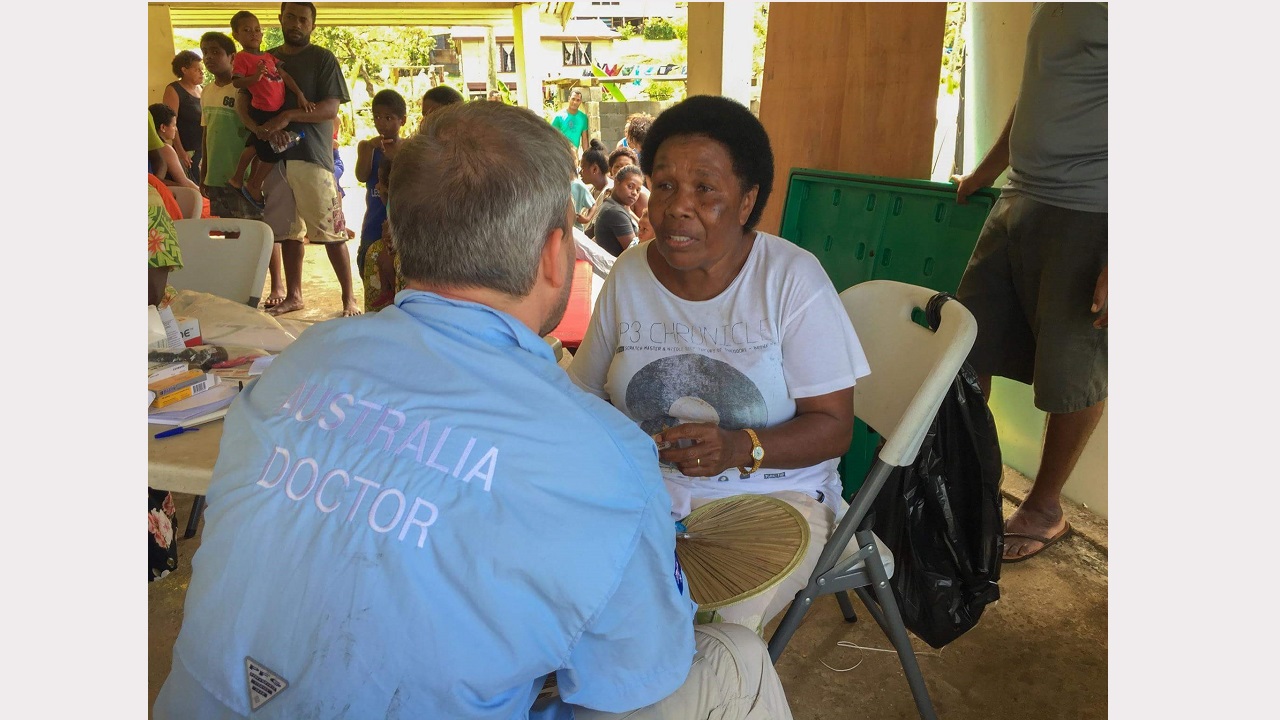Calls for humanitarian disaster responses to include palliative care
Calls for humanitarian disaster responses to include palliative care
by Heather Wiseman
Friday, April 21, 2017
Palliative care needs to be an integral part of humanitarian disaster responses, according to eight international experts who have raised the issue in a prestigious medical journal this week.
In a comment piece for The Lancet experts from seven countries said palliative care has been omitted from efforts to tackle humanitarian crises. The issue affects people receiving palliative care that is interrupted by a crisis, people triaged in mass casualty events, those infected during high-mortality communicable disease outbreaks and displaced people living in refugee camps.
While triage systems used in mass casualty events identify people who are unlikely to survive, those people “can be neglected because their treatment can be seen as diverting resources from salvageable patients”.
The authors, including Australian public health physician, Dr Brett Sutton, said a root cause may be inadequate understanding of palliative care’s goals.
“Some members of the humanitarian community regard palliation as an end-of-life intervention that is only used when all curative treatments are redundant – when there is ‘nothing else to offer’ – rather than as a way to minimise patients’ suffering and maximise their quality of life,” the article said.
Dr Sutton has travelled to more than 80 lower-to-middle income countries has worked in health coordination or project doctor roles in Afghanistan, Ethiopia, Kenya and Timor-Leste. He is also a co-founder of Palliative Care in Humanitarian Aid Situations and Emergencies (PalCHASE).
He told Palliative Matters that complex, challenging situations such as the Ebola virus outbreak in West Africa called for creative thinking in order for palliative care needs to be met.
“Kids under one with Ebola had a 90% chance of dying, so there was a need to take a palliative care approach even as active treatment is underway,” he said.
He heard of a toddler with the virus who had to be isolated, as she was wandering into a ward occupied by people who had a suspected, but unconfirmed, diagnosis.
The toddler was placed in a makeshift bed in a room she couldn’t exit. Doctors had to wear protective covering when visiting her and could stay no longer than 45 minutes in order to reduce their risk of contracting the virus.
“In the end, that toddler was left on her own,” Dr Sutton said.
“She died in a cardboard box, without human touch or seeing a human face.
“We need to come up with creative solutions. Maybe people who have recovered from the virus can go in without personal protective equipment and give human touch and interaction to those who are dying. If we don’t think about palliative care needs in settings like that, then we’ll never think of solutions.”
He said that about 200,000 people had crush injuries after the 2010 earthquake in Haiti, which suggested tens of thousands of people probably experienced acute renal failure in the weeks afterwards.
“It is imperative that we save lives, but I think this is a setting where people were clearly going to die from kidney failure over one, two or three weeks.
“It would have been good to think about palliative care needs, even if it was just in terms of how their family could be engaged in their care at home or in a hospital setting, and how they could get appropriate relief from suffering.”
Dr Sutton said thinking about palliative care when planning humanitarian responses would ensure family and community members were better equipped to provide spiritual and emotional care to the dying and realise that they can make a difference.
“Interventions don’t necessarily require some enormous impost on top of the care that is already given. If there is just a philosophy about thinking about palliative care when planning your response, you can give minimal training and guidance to family members.
“If they understand the needs of individuals who are dying, they may be able to reduce anxiety by just listening, being present and holding their hand; that might be all that is required.”
While working in Afghanistan in 2003, caring for a 25-year old, internally displaced woman who died from multi-drug-resistant tuberculosis, Dr Sutton felt the absence of palliative care guidelines and became concerned provision was ad hoc.
“It made me reflect that we were relying on our individual expertise, but there wasn’t any guidance in humanitarian standards. We did the best we could with what we had, but the care of the dying could be highlighted and improved in that setting as with many others.”
The Lancet opinion piece calls for minimum palliative care standards to be included in the Sphere Project humanitarian handbook, ‘Humanitarian Charter and Minimum Standards in Humanitarian Response’.
“Additionally, research on the topic is urgently needed, including: baseline palliative care needs assessments; costs and effectiveness of palliative care interventions; surveys on humanitarian practitioners’ knowledge, attitudes, and practices; and the scoping of humanitarian agencies’ work in this field.”
Dr Sutton said standards would serve as an advocacy tool to help ensure essential medication, such as opioids, were made available in countries that currently did not support its use.
“Then the big players globally can say opioids should be part of your humanitarian care and so ‘What are you doing to overcome the legal, logistical, political or cultural barriers so that it can be put in place?’”
“Pain relief should be part of the package in any humanitarian setting, whether people are dying or not. But bringing palliative care into [humanitarian workers’] mindset means they can think about morphine for palliative care, as well as for saving lives. People who are going to die have as much right to pain relief as those who might live.”
The Lancet’s open-access comment piece, “Palliative care in humanitarian crises: always something to offer”, was co-authored by experts from Kenya, Canada, UK, South Africa, Nepal and Germany.

